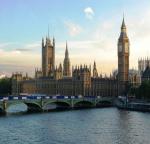
Billions of pounds were invested into the 2012 Olympics. But how much of it benefitted Londoners – creating more jobs and reducing poverty – and how much was probably just “a waste of money”? Perhaps somewhat surprisingly, despite the economic crisis, according to a report from Xinhua, most Britons expressed pleasure with the large investment. But that could be just down to the feel-good factor surrounding the games’ hosting.
Loss or Gain?
From an urban business perspective, the games resulted in a loss. Not as many fans showed up and regular tourists were put off by the potential crowds so didn’t make London their summer 2012 vacation spot. This thus put hoteliers and retailers at a monetary loss. Still, while there were 100,000+ foreign visitors in London for the games (which is a higher number than in past games), these out-of-towners are not spending the kind of money regular tourists are. Usually during August, the capital welcomes around 300,000 foreign and 800,000 British tourists, who spend money at hotels, museums, and other tourist sites. In replacement of this, 500,000 Olympic ticket purchasers came. These people have little interest in spending money in stores, taking in a theatrical performance, eating at fancy restaurants or checking out local tourist spots; they are coming purely for the games. Indeed, according to Nick Burns, head of the Nimax Theatres Group, there will be a reduction of 30 percent of summer ticket sales in West End theaters, and a drop of a third of museum tickets.
Olympic Legacy Improving the Capital?
So it is possible that the actual Olympics might have rendered Britons a financial loss. But that’s the short-term vision. What about the long-term financial implications for the capital? On the positive side, there has definitely been an escalation in pride for Londoners who have been working at the Olympics over the last few weeks. The question is, in a city that has encountered many stories over its 2,000 year history, will the games be remembered in a few decades’ time? It depends where one lives. For the Eastenders, it will make a difference. This part of the capital has always been somewhat of a lower-class, unattractive place to live and work, but now that a lot of the $14bn Olympic-related infrastructure improvements have been made there, the whole feel of the place could be substantially changing for the better. Before the 560-acre Olympic Park was in place, all that could be seen was a toxic no-man’s land. It is a due for even more renovation following the end of the games. In its reopening next year, many of the Olympics’ temporary structures will have been replaced by playgrounds, waterways, cycling lanes and picnic areas.
Indeed, one of the reasons the games were to be hosted in London was based on a promise to begin redeveloping the city’s “long-suffering eastern boroughs.” They have now been rendered the “most sustainable Olympics ever,” with hopes of generating additional jobs and housing and finish the cleanup of an area that’s always been one of England’s poorest. In addition, an improvement in transit links that tie the area to its surroundings is due to begin, including a high-speed train taking central London travelers to the park in seven minutes, arriving at Europe’s largest indoor shopping mall at Westfield Stratford City, generating further jobs.
So while the initial 2012 London Olympic Games investment may not have “paid off” in a way vendors in the capital would have liked, for the long-term future of the capital – especially in the East End – the billions of pounds that were invested for the games will hopefully make a viable difference to the future of the capital’s economy.
